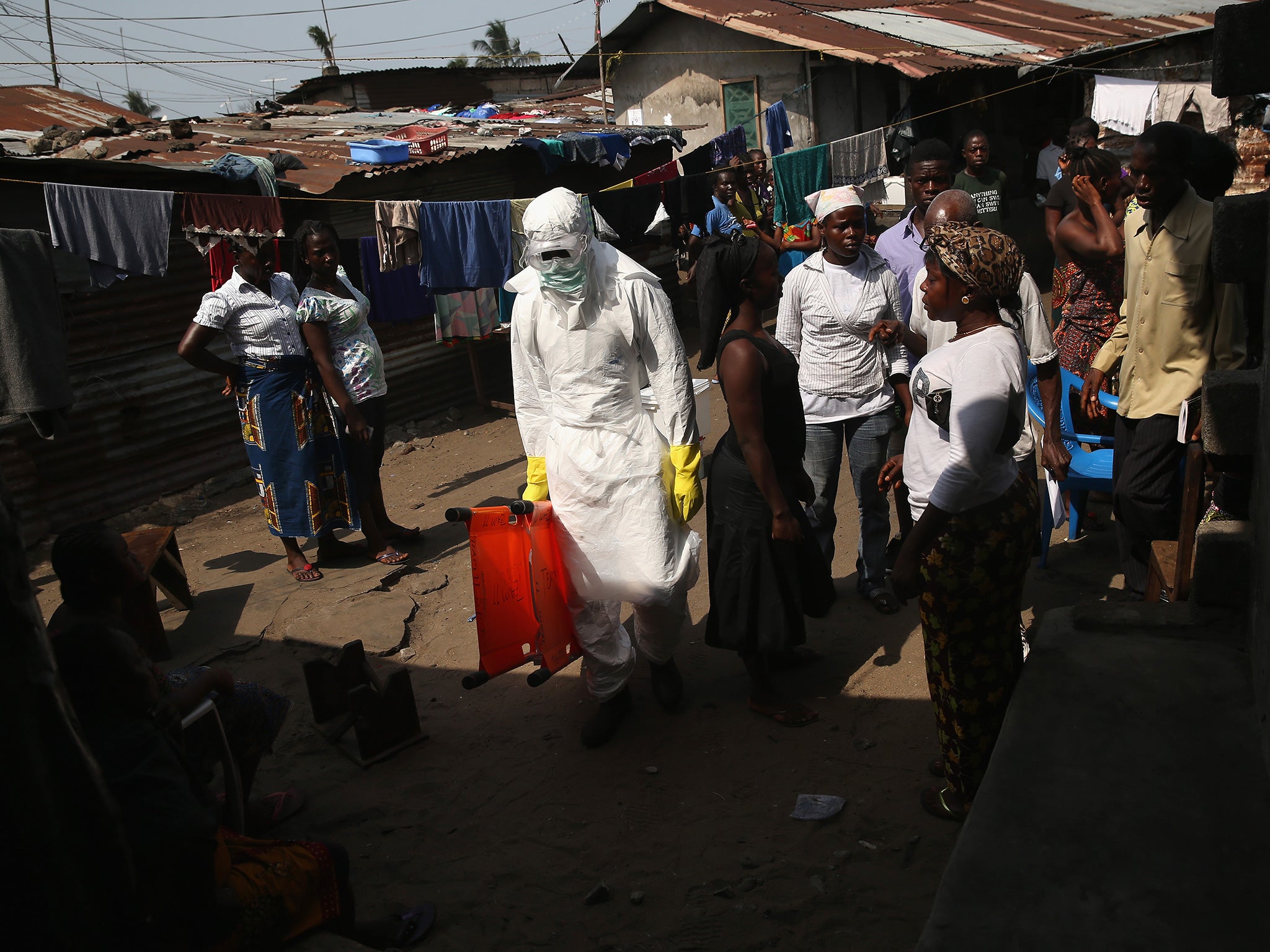Inequality remains the real killer in Africa - as the Ebola outbreak has shown
Images of listless patients, lying on mats in makeshift clinics, play into a false narrative of inevitability

Three days ago, a British healthcare worker who contracted the Ebola virus in Sierra Leone was flown back to the UK. She is now being treated at the Royal Free Hospital in London where two British nurses, William Pooley and Pauline Cafferkey, were successfully treated in the past. Five other British healthcare workers were flown home last week after suspected contact with the virus.
I hugely admire Western health workers who go to West Africa, and I don’t begrudge them the best possible treatment when they are exposed to the virus. But the striking difference in survival rates between African victims and Western patients who are flown home tells an uncomfortable story. Even the best hospitals in the Western world would struggle to cope with a full-scale Ebola epidemic, rather than the isolated cases we have seen so far. But the countries affected by the current outbreak didn’t have anything like adequate health services to begin with.
That’s one of the reasons I’ve found images of African victims so hard to bear. Images of listless patients, lying on mats in makeshift clinics, play into a false narrative of inevitability; like famine, this is what happens in Africa. But it isn’t: the chief reason why Africans are more likely than Westerners to die from Ebola is inequality. The contrast with a handful of British patients, who are transported from RAF planes in mobile isolation units, and attended by a phalanx of health professionals, is almost too painful to contemplate.
When the first Ebola patients were diagnosed in Sierra Leone, I thought of the doctors and nurses I met on my first trip there seven years ago and wondered how they could possibly cope. When a matron showed me around Freetown’s Connaught Hospital, I was shocked by the lack of basic equipment; I was equally shocked by the diseases they were struggling to treat on a daily basis, including malaria, meningitis and tetanus. Elsewhere in the country, I met young adults with wasted legs and discovered that they had contracted polio when they were children, at a time when it had all but disappeared in Europe.
In the US, there are fewer than 2.5 doctors for every 100,000 residents; in Sierra Leone, when the Ebola outbreak began, the comparable figure was 0.22. There were around 134 doctors and little more than 1,000 nurses to care for a population of six million, and 11 local doctors died in the first nine months. In all, across the three worst affected countries – Guinea and Liberia as well as Sierra Leone – a total of 339 health workers had died by the end of last year.
Few countries in the world were in a worse position to deal with a deadly virus. Last week, according to the World Health Organisation, the death toll in West Africa passed 10,000. It’s a dreadful milestone, but the reason it’s so high is that Ebola has attacked populations made vulnerable by inequality.

Join our commenting forum
Join thought-provoking conversations, follow other Independent readers and see their replies